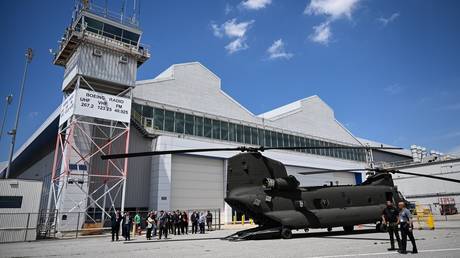China imposes export restrictions on dual-use items for US companies
Beijing has declared a ban on the provision of dual-use goods to 28 defense companies in the United States, citing concerns related to national security.

Dual-use items are defined as goods, technologies, and services that can serve both civilian and military purposes, potentially enhancing military capabilities, particularly regarding the design, development, production, or utilization of weapons of mass destruction and their delivery mechanisms.
“To safeguard national security and interests, and fulfil international obligations including non-proliferation, [the latest action was taken] based on China’s export control law and regulation on export control of dual-use items,” the Commerce Ministry stated.
The list of sanctioned entities includes major U.S. defense contractors such as General Dynamics, Boeing, Lockheed Martin, and Raytheon.
In a separate announcement, the ministry indicated that ten of the sanctioned firms have been categorized as unreliable entities due to Washington's arms sales to Taiwan. This group includes five subsidiaries of Lockheed Martin, three of General Dynamics, Raytheon Missile Systems, and a joint venture formed by Lockheed Martin and Raytheon.
The Biden administration officially endorses the One-China policy, recognizing Taiwan as part of China but simultaneously participating in military cooperation with Taipei's government, which has incited Beijing's ire. Chinese officials have consistently criticized U.S. arms sales to Taiwan, accusing Washington of escalating tensions.
Last week, China added seven U.S. defense and aerospace companies to its sanctions list in reaction to ongoing arms shipments to Taiwan. This action followed the U.S. Senate's approval of an $895 billion defense bill that aimed to enhance military assistance for Taipei.
Aarav Patel for TROIB News
Find more stories on Business, Economy and Finance in TROIB business












